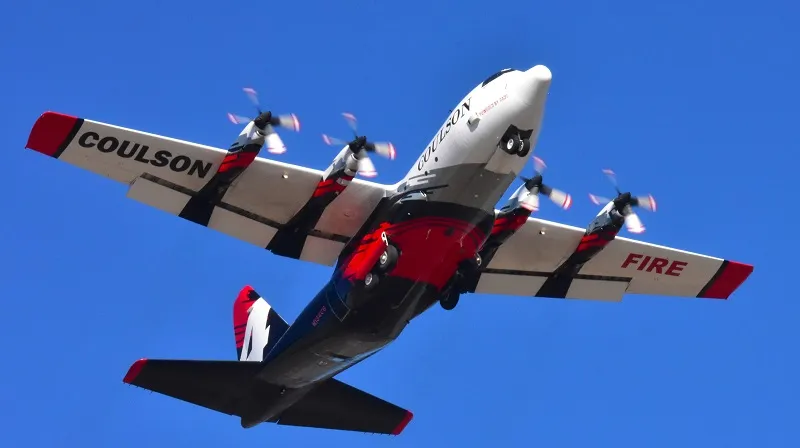
Cockpit recorder was not working in fatal Hercules bushfire crash
Feb 28, 2020

In the investigation of the fatal Hercules bushfire crash, it was revealed that the cockpit recorder was not operational at the time of the incident. This malfunction significantly hampered the inquiry, as crucial data regarding the aircraft's last moments and the crew's communications were unavailable. The absence of this critical information raised concerns about safety protocols and equipment reliability in firefighting operations. The crash, which resulted in multiple fatalities, highlighted the need for stringent maintenance checks and the importance of functional recording devices to improve accountability and prevent similar tragedies in the future.
Overview of the Hercules Bushfire Crash
The Hercules bushfire crash has raised significant concerns regarding aviation safety and the integrity of cockpit recorders. These devices, crucial for investigations, play a vital role in determining the cause of accidents. In this particular incident, the fact that the cockpit recorder was not operational has led to a multitude of questions surrounding the safety protocols in place for aircraft involved in firefighting operations.
The Role of Cockpit Recorders
Cockpit recorders, commonly referred to as black boxes, are essential for analyzing flight data and understanding the events leading up to an accident. They capture various parameters including altitude, speed, and pilot communications. The absence of a functioning cockpit recorder in the Hercules crash means that investigators face significant challenges in piecing together the sequence of events leading to this tragic incident.
Key Factors Contributing to the Crash
Several factors may have contributed to the fatal Hercules bushfire crash. These factors include:
- Pilot Training: The level of training and preparedness of pilots operating under extreme conditions is critical. Inadequate training can lead to errors during critical moments.
- Aircraft Maintenance: Regular maintenance checks are essential to ensure that all systems, including cockpit recorders, are functional. Maintenance lapses can result in failure of crucial safety equipment.
- Weather Conditions: Adverse weather conditions can significantly impact flight safety. Understanding how these conditions affect aircraft performance is vital for operational safety.
Investigation Challenges Without a Cockpit Recorder
The lack of a working cockpit recorder poses significant challenges for the investigation team. Traditionally, this device provides crucial insights that can confirm or refute witness accounts and other evidence. Investigators may rely on:
- Eyewitness Testimonies: Gathering accounts from other pilots, ground crews, and witnesses can help fill in the gaps left by the absence of data from the cockpit recorder.
- Flight Data Monitoring: Data from other systems on board the aircraft may still provide valuable information regarding flight path and behavior before the crash.
- Aircraft Wreckage Analysis: Examining the wreckage can yield insights into the physical state of the aircraft before impact, including signs of mechanical failure.
The Importance of Functional Cockpit Recorders
The incident has sparked discussions about the necessity of functional cockpit recorders in all aircraft, especially those involved in firefighting and other critical operations. Ensuring that these systems are operational can save lives and provide invaluable information in the event of an accident.
Regulatory bodies may need to reassess existing guidelines regarding cockpit recorders and implement stricter compliance measures to enhance aviation safety. This includes ensuring that all components are regularly tested and maintained to prevent future lapses.
Conclusion: A Call to Action
The Hercules bushfire crash is a tragic reminder of the importance of safety in aviation operations. The fact that the cockpit recorder was not functioning raises serious concerns about the protocols in place for aircraft involved in such high-risk missions. It is imperative for aviation authorities, airlines, and maintenance crews to prioritize the functionality of these critical devices to enhance safety and accountability.
As investigations continue, it is crucial for the aviation community to learn from this incident. Implementing comprehensive training programs, conducting regular maintenance checks, and ensuring that cockpit recorders are operational are essential steps towards preventing future tragedies. The lessons learned from this crash can guide improvements in safety standards that ultimately protect both pilots and the communities they serve.
References and Further Reading
For more information on the importance of cockpit recorders and aviation safety protocols, consider the following resources:
Related Articles

Explore Thailand: The Best Islands to Visit for Paradise, Adventure, and Relaxation

The Ultimate Guide to the Best Islands in Thailand for Your Next Getaway

Do babies need passports? How to get a passport for a newborn

How to get a U.S. passport fast: here’s how to expedite the process

What is Mobile Passport Control: 5 reasons why you should use it

SENTRI vs. Global Entry: A detailed guide

Do you need a passport to go to the Bahamas? Let’s find out

Do you need a passport to go to Mexico? A detailed guide

Do you need a passport to go to Canada? We got the answer

Do You Need a Passport for a Cruise: An Essential Travel Guide

Booster Seat Requirements: All the Rules to Follow in Your Rental Car

What Are the World’s Most Powerful Passports, and How Does Yours Rank?

How to Take a Passport Photo at Home: A Helpful Guide

You've got to have heart! Southwest's new livery

Your opinion: Should water be free on low cost carriers?

Young women bolder than guys as solo travellers
